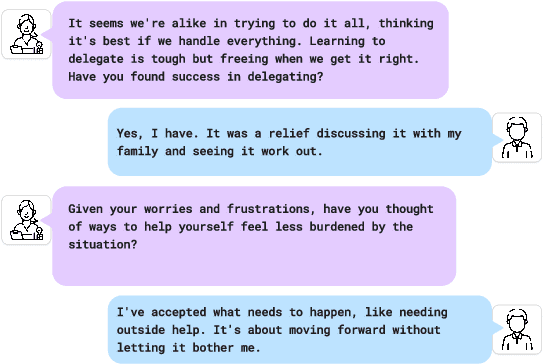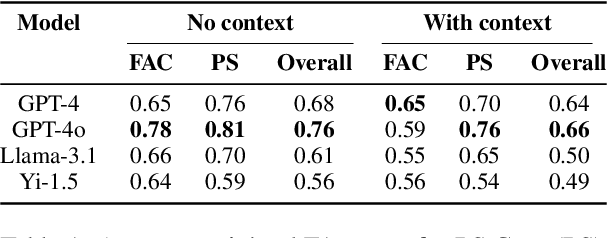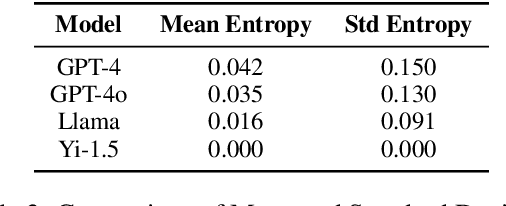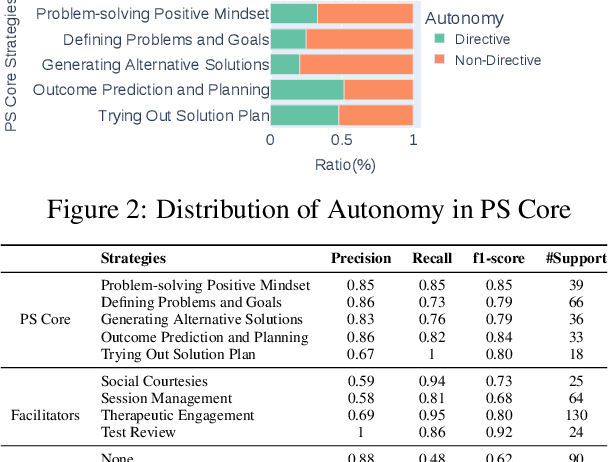Jina Huh-Yoo
From Conversation to Automation: Leveraging Large Language Models to Analyze Strategies in Problem Solving Therapy
Jan 10, 2025



Abstract:Problem-solving therapy (PST) is a structured psychological approach that helps individuals manage stress and resolve personal issues by guiding them through problem identification, solution brainstorming, decision-making, and outcome evaluation. As mental health care increasingly integrates technologies like chatbots and large language models (LLMs), understanding how PST can be effectively automated is important. This study leverages anonymized therapy transcripts to analyze and classify therapeutic interventions using various LLMs and transformer-based models. Our results show that GPT-4o achieved the highest accuracy (0.76) in identifying PST strategies, outperforming other models. Additionally, we introduced a new dimension of communication strategies that enhances the current PST framework, offering deeper insights into therapist-client interactions. This research demonstrates the potential of LLMs to automate complex therapeutic dialogue analysis, providing a scalable, efficient tool for mental health interventions. Our annotation framework can enhance the accessibility, effectiveness, and personalization of PST, supporting therapists in real-time with more precise, targeted interventions.
The Role of AI in Peer Support for Young People: A Study of Preferences for Human- and AI-Generated Responses
May 04, 2024



Abstract:Generative Artificial Intelligence (AI) is integrated into everyday technology, including news, education, and social media. AI has further pervaded private conversations as conversational partners, auto-completion, and response suggestions. As social media becomes young people's main method of peer support exchange, we need to understand when and how AI can facilitate and assist in such exchanges in a beneficial, safe, and socially appropriate way. We asked 622 young people to complete an online survey and evaluate blinded human- and AI-generated responses to help-seeking messages. We found that participants preferred the AI-generated response to situations about relationships, self-expression, and physical health. However, when addressing a sensitive topic, like suicidal thoughts, young people preferred the human response. We also discuss the role of training in online peer support exchange and its implications for supporting young people's well-being. Disclaimer: This paper includes sensitive topics, including suicide ideation. Reader discretion is advised.
 Add to Chrome
Add to Chrome Add to Firefox
Add to Firefox Add to Edge
Add to Edge